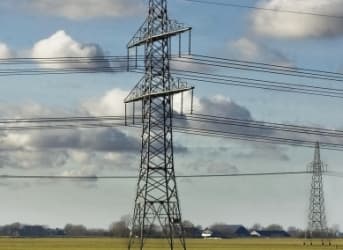Panasonic is the biggest shareholder in the lithium ion battery market today. With a market share of close to 20.5 percent the Japanese company has left the other East Asian players such as LG Chem, Samsung SDI, Sony and ATL behind. Panasonic manufactures batteries for Tesla’s Model S, Model X and it has also invested in Tesla’s upcoming Gigafactory.
However, competition in the energy storage sector (especially as it relates to the automotive sector) is set to intensify as South Korea’s LG Chem is gearing up to topple Panasonic from the top position. In a latest update, Tesla Motors has confirmed that it will be collaborating with LG Chem on upgrading the battery of its Tesla Roadster, which was the first EV made by the California based company in 2008.
The new battery cells produced by LG Chem would be capable of producing around 40 percent more energy, thereby increasing the car’s range by close to 35 percent. This is a significant move by Tesla as Panasonic is already working on Tesla EVs in addition to being its partner in the massive Gigafactory.
Could The Automotive Battery Game Surprise Everyone?
On one hand, Tesla has announced that it will team up with LG Chem for its Tesla Roadster. And, on the other, the world’s largest selling EV- the Nissan Leaf is now looking to use batteries made by LG Chem for its second generation model. Related: Obama Admin Throws Alaska An Oil Lifeline
“For the moment, we consider that the best battery maker is LG,” said Nissan’s CEO Carlos Ghosn whose company is currently using batteries manufactured by AESC for the LEAF. If Nissan starts using batteries made by LG Chem, the South Korean Battery Manufacturer would become a supplier for Tesla, Nissan, General Motors, Hyundai and Ford. This development could eventually displace Panasonic from the top spot in energy storage. The battery game for the automotive sector might just surprise everyone, as in the end, it’s the cost that matters.
A report in 2014 stated that Tesla was paying Panasonic close to $180 per KWh for its Lithium Ion batteries. On the other hand, Mark Reuss- General Motors’ Executive Vice President recently stated that LG Chem was capable of bringing down the cost to around $145 per KWH by 2016. GM is working with LG Chem on the production of Chevrolet Bolt EV. Lower battery costs and superior battery technology are the two reasons why Nissan and Tesla are now looking towards LG Chem.

Overall Lithium Ion Battery Market Share Image Source: PVMagazine Related: Canada’s Oil Sector Cautiously Optimistic About Late 2016 Recovery
If we look at the overall market share for the Lithium Ion batteries (figure above), we see that there are several players such as Lishen, Coslight, Maxell and others that have smaller market share when compared to Panasonic, LG Chem and Samsung SDI. In the quest to retain market share or gain the top spot, Panasonic, LG Chem and even Samsung SDI might consider an option of acquiring or merging with these companies with smaller market share in the years ahead. However, with current market conditions, the possibility of a merger or an acquisition looks highly.
Could military applications make this market even more valuable in the long term?
There is another exciting development that might add a lot of juice to the energy storage market.
Electric weapons are touted to be the next ‘game changer’ for future military applications. Broadly divided into two categories: electromagnetic launch technology (railguns) and directed energy technology (laser guns), electric weapon’s power systems are limited by energy storage capacity more than anything else. Both laser guns and railguns require close to 20 MW of power every few seconds during an active firing engagement and in the end, the effectiveness depends upon the weapon’s capability of storing the required electric power. Related: Is Iran Opening A “Secret Passage” To Asia For Russian Crude?
With the U.S. Navy awarding a $91 million contract to Northrop Grumman Aerospace System to develop a laser weapon with three times the energy storage capacity of a conventional Laser Weapon System, the energy storage market for electric weapons could stand at around $1 billion in the next couple of years, thereby making this sector even more lucrative.
ADVERTISEMENT
Conclusion
While the majority of focus still remains on the increasingly competitive EV market, there are several additional markets emerging in the utility and domestic energy storage and military sectors that have attracted yet more interest from several major players across the globe. So much so, in fact, that the U.S. Congress recently announced the launch of a Congressional Battery Energy Storage Caucus with a view to further educating and advising government about this rapidly developing market. Expect to see a lot more investment in the space over the next few years as well as some potentially massive mergers and acquisitions.
By Gaurav Agnihotri for Oilprice.com
More Top Reads From Oilprice.com:
- The Race To Develop The Ultimate Battery
- The Next Great Scandal For The Oil Industry?
- Crude Sinks As Jobs Report Propels Dollar Even Higher



















We need to mine and burn oil and coal to kill jobs in order to create low paying jobs in the economy!!!